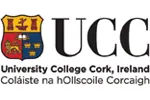We're moving! This site will be relocating to goingto.university in 2026. Please update your bookmarks to the new address.


Ireland
University College Cork (UCC)| The award | How you will study | Study duration | Course start | Domestic course fees | International course fees |
|---|---|---|---|---|---|
| BA (Hons) | Full-time | 3 years | September | EU 3000 | EUR 3000 |
Overview
This was one of the first degree courses of its kind in Ireland and pioneered the development ofEarly Years and Childhood Studiesas a distinctive specialty with distinctivecareers.
This three-year degree will expose you to interdisciplinary perspectives from the Schools of Applied Psychology, Applied Social Studiesand Education, each of which contributes a third of the teaching.
The curriculum places emphasis on academic theory, research skills and professional and reflective practice. It includes a broad range of perspectives on childhood, the child in society, child development, early years care and education, and child health.
Supervised work-based placements in diverse childhood-related settings form an integral part of this course. You will undertake a 10- to 12-week placement in both Years 2 and 3. The professional practice placements provide opportunities for you to apply the theories you have learned, and to experience working with children under the guidance of expert practitioners.
Course Details
On successful completion of this course, you will be able to:
Year 1 Modules:
AP1110Psychology as Science (5 credits);
AP1123Introduction to Biological and Cognitive Perspectives on Psychology (5 credits);
AP1149Introduction to Developmental and Social Psychology (5 credits);
AP1504 Research Methods in Education and Psychology (5 credits);
ED1010Historical Developments in the Irish Education Sector (5 credits);
ED1012Early Years and Childhood Studies: Pedagogy and Practice (5 credits);
ED1013 & ED1014Contemporary Issues in Early Years and Childhood Studies I & II (5 credits each);
SS1006Social Analysis & Child Care Policy I (5 credits);
SS1015 & SS1016Social Policy and Society I & II (5 & 10 credits respectively)
Year 2 Modules:
Developmental Psychology; Early Years and Childhood Health and Wellbeing Project; The Curriculum in Special Needs Education; Early Years and Childhood Policy: Planning and Practice;
Early Years and Childhood Curricula: Ideology, Pedagogy and Practice; Professional Practice/Theory Integration; Social Analysis and Child Care Policy 2
Year 3 Modules:
Applied Developmental Psychology; Applying Psychological Theory and Reflective Practice to Placement Context; Child and Family Health Psychology; Psychological Perspectives on Special Educational Needs; Advanced Studies in Early Years and Childhood Education; Education Placement; Social Analysis, Gender and Society; Social Research in Early Years and Childhood Studies
See the College Calendar for additional information on the Programme and the Book of Modules for further information on modules.
Fact File
Course Code: CK111
Course Title: Early Years and Childhood Studies
College: Arts, Celtic Studies and Social Sciences
Duration: 3 years
Teaching Mode: Full-time
Qualifications: BA (Hons)
NFQ Level: Level 8
Costs: Full-time EU/EEA/Swiss State undergraduate students may be exempt from paying tuition fees. The State will pay the tuition fees for students who satisfy the Free Fees Criteria. In 2016/17 the Student Contribution Charge will be EUR 3,000 and the Capitation Fee will be EUR 165.
2017 Entry Requirements: H5 in two subjects, and O6/H7 in four other subjects in the Leaving Certificate from Irish, English, another language, and three other subjects recognised for entry purposes.
Entry Points: 2016: 395. Points may vary from year to year
Course Practicalities
Expected practical hours:During Year 1, you will attend professional workshops in an early years care-and-education setting. You will undertake a 10- to 12-week placement in both Years 2 and 3 of the course.
Other practicalities
Commencing with the 2013/2014 intake, this programme will be subject to UCC's Fitness to Practise Policy – full details may be found here
Garda vetting is carried out by the Admissions Office in UCC once a student has accepted their place on this progamme.
Assessment
Written exams will take place before Christmas and in May. Not all modules will have formal examinations. Many modules use other types of assessment including portfolio work, research projects and essays, as well as group and individual presentations.
Application Procedure
EU applicants: Application to Year 1 of the degree programme is made directly through the Central Applications Office (CAO). Applicants should apply online at www.cao.ie. The normal closing date for receipt of completed applications is 1st February of the year of entry.
Non-EU Applicants.
Mature Applicants: Application is made through the CAO (www.cao.ie)and the closing date for receipt of completed applications is 1st February of the year of proposed entry.
Further Contact Information
Marie O'Donovan
Course Administrator
T: +353 (0)21 490 3487
2017 Entry Requirements: H5 in two subjects, and O6/H7 in four other subjects in the Leaving Certificate from Irish, English, another language, and three other subjects recognised for entry purposes.
Entry Points: 2016: 395. Points may vary from year to year
Contact University College Cork (UCC) to find course entry requirements.
Below are some suggested courses at other providers that you may also be interested in:
Research in Special Needs Education Master Degree
Faculty of Educational Sciences, University of Oslo
Find out moreIf you do not meet the entry requirements for this course then consider one of these courses from another institution:
There are 338 other courses listed from University College Cork (UCC). A selection of these are displayed below:
Join the StudyLink email list and never miss a chance to turn your study abroad dreams into reality!

Find out more about studying in Ireland